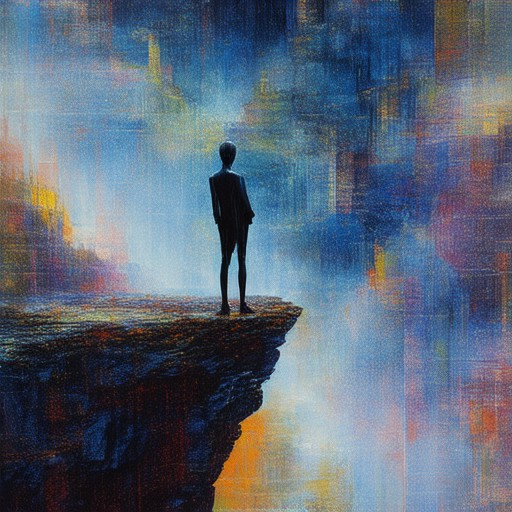Exploring artistic concepts is a journey that has the power to transform the way we see the world, offering endless possibilities for creativity and self-expression. For anyone eager to dive into the realm of artistic exploration, this guide serves as a comprehensive resource, providing valuable insights and strategies to master the art of creative expression. Whether you’re an aspiring artist, a seasoned creator, or someone simply curious about the mechanics of art, this guide will walk you through the foundational principles, key concepts, and practical techniques that form the backbone of artistic exploration. From understanding color theory and composition to experimenting with shapes, forms, and mixed media, this article will equip you with the knowledge and confidence needed to approach art with a fresh perspective and a deeper understanding of its underlying principles. By the end of this exploration, you’ll not only have a clearer vision for your artistic projects but also a renewed appreciation for the beauty and complexity of art itself.
Key Takeaways
– Master Color Theory to manipulate hues effectively and create mood in your artwork.
– Understand Composition to arrange elements thoughtfully, balancing symmetry and contrast for visually appealing pieces.
– Explore Perspective to create lifelike representations and tell compelling stories in your art.
– Experiment with Medium-Specific Techniques to enhance your artistic style using unique properties of different mediums.
– Choose Subject Matter That Resonates with your authentic vision, whether portraiture, landscapes, or still lifes.
– Use Storytelling Through Art to convey emotions and experiences, crafting narratives with symbols and metaphors.
– Draw Inspiration From Diverse Cultures and Movements to broaden your creative horizons and absorb influential techniques.
– Develop Technical Skills to support your artistic vision, whether through mixing paints or mastering digital tools.
– Find Your Unique Artistic Style by experimenting with techniques, mediums, and themes to create distinctly personal work.
– Stay Curious and Explore Continuously to attend exhibitions, watch videos, and read books that inspire your creative growth.

How Can I Start Exploring Artistic Concepts?
Exploring artistic concepts is an exciting journey that can begin with curiosity and a willingness to experiment. Here’s a structured approach to help you dive in:
1. Understand the Basics
Start by gaining familiarity with various art forms and their techniques. Explore mediums like painting, sculpture, photography, digital art, and more. Learn about the tools, materials, and common practices associated with each form.
2. Get Inspired
Visit museums, galleries, and art exhibitions to see works by renowned artists. This exposure can spark your creativity and give you ideas to experiment with. Check out art books, documentaries, or online platforms like Pinterest for inspiration.
3. Practice Techniques
Get started with basic art techniques. Try sketching, drawing, or painting. Look for tutorials or guides online to help you improve your skills. Websites like YouTube and ArtStation offer valuable resources for learning.
4. Join a Community
Engage with other artists and enthusiasts by joining local art classes, workshops, or online forums. Sharing your work and getting feedback can provide valuable insights and motivation to keep going.
5. Explore Different Cultures Through Art
Delve into art from various cultures and historical periods. Study the works of iconic artists and movements, such as Renaissance, Impressionism, or Modern Art. This can broaden your perspective and deepen your appreciation for art.
6. Experiment With Materials
Don’t hesitate to experiment with different art materials. Try working with watercolors, oil paints, clay, or digital tools. Mixing mediums can lead to unique creations and help you discover your personal style.
Remember, there’s no right or wrong way to explore art. Take your time, enjoy the process, and let your creativity flow naturally. The journey of discovering artistic concepts is as rewarding as the artwork itself!
What Are the Key Concepts Every Artist Should Know When Exploring Artistic Expression?
Exploring artistic expression is a deeply personal and transformative journey that requires a solid understanding of fundamental concepts. Here are the key ideas every artist should grasp to unlock their full creative potential:
- Creativity as a Process : Creativity is the cornerstone of artistic expression. It involves thinking outside the box, embracing experimentation, and finding innovative ways to communicate ideas. Artists should cultivate a mindset that welcomes failure as a stepping stone to success.
- Inspiration and Source Material : Inspiration can come from various sources, including nature, history, personal experiences, and cultural movements. Artists often draw from diverse influences to create unique works that resonate with audiences.
- Technique and Skill Development : Mastery of techniques is essential for expressing ideas effectively. Whether it’s painting, sculpting, or digital art, honing skills allows artists to bring their visions to life with precision and confidence.
- Style and Voice : Developing a distinct style helps an artist stand out. This includes choosing color palettes, composition techniques, and subject matter that align with their unique perspective and vision.
- Purpose and Message : Art often serves a deeper purpose, whether it’s to provoke thought, evoke emotions, or reflect societal issues. Understanding one’s mission as an artist can guide decisions and contribute meaningfully to the world.
To further explore these concepts, we invite you to visit our resources page, where you’ll find tutorials, guides, and articles tailored to help artists at all levels. Our platform is dedicated to supporting creative growth through tutorials , inspiration , and community connections.

Essential Artistic Concepts Every Artist Should Explore
Exploring the fundamental principles of art can unlock your creative potential and elevate your work. Here are the key concepts every artist should delve into:
- Color Theory : Master the basics of color, including primary, secondary, and tertiary colors. Understand complementary colors and learn how to mix hues effectively to create mood and atmosphere.
- Composition : Develop a strong understanding of composition, focusing on elements like balance, contrast, and symmetry. Experiment with different layouts to find what works best for your style.
- Form and Shape : Explore how shapes and forms can convey meaning and emotion. Practice observing organic and geometric forms in the world around you.
- Texture : Experiment with different textures, from smooth and soft to rough and coarse. Use texture to add depth and interest to your creations.
- Line and Contour : Learn to use line effectively to define shape, create movement, and establish a sense of rhythm in your artwork.
- Space and Perspective : Study how space can influence your viewer’s perception. Practice drawing from different perspectives, including foreshortening and vanishing points.
- Light and Shadow : Understand the role of light and shadow in creating dimension and realism. Experiment with lighting techniques to bring your subjects to life.
- Storytelling Through Art : Learn to tell stories through your artwork. Incorporate symbols, metaphors, and narratives to communicate deeper meanings and emotions.
- Cultural and Historical Influences : Research how different cultures and historical periods have shaped artistic styles. Be inspired by the masters of the past while developing your unique voice.
- Experimentation and Innovation : Don’t fear failure. Embrace experimentation to push boundaries and discover new techniques that resonate with you personally.
By exploring these concepts, you’ll gain a solid foundation in art and develop your own signature style. Keep experimenting, studying the masters, and pushing your creative limits to grow as an artist.

Key Concepts Every Artist Should Explore
When diving into artistic expression, it’s essential to embrace a diverse range of principles and techniques that fuel creativity and innovation. Here are the core concepts every artist should explore:
- Color Theory : Mastering color theory allows artists to manipulate hues effectively, creating mood and depth in their work. Understanding complementary colors, color wheels, and the psychological impact of certain hues can elevate your compositions.
- Composition : Composition is the arrangement of elements within a artwork. Artists should experiment with balance, symmetry, and contrast to create visually appealing and meaningful pieces. Consider techniques like diorama and trompe-l’oeil to add depth and realism.
- Perspective : Perspective gives the illusion of three-dimensional space on a two-dimensional surface. Exploring perspective helps artists create lifelike representations and tell stories that draw viewers in.
- Medium-Specific Techniques : Whether working with paint, clay, or digital tools, mastering medium-specific techniques is crucial. Each medium has unique properties and methods that can enhance your artistic style.
- Subject Matter : Choose subjects that resonate personally with you. Authenticity and emotional connection often lead to more compelling artwork. Whether it’s portraiture, landscape, or still life, let your subject reflect your vision.
- Storytelling Through Art : Art is a powerful medium for storytelling. Consider how your artwork can convey narratives, emotions, or experiences. Use symbols, metaphors, and composition to communicate your message effectively.
- Cultural and Artistic Influences : Drawing inspiration from various cultures and artistic movements broadens your creative horizons. Study iconic works and absorb the techniques and styles that have shaped the art world.
- Technical Skills : Develop technical skills that support your artistic vision. Whether it’s learning how to mix paints, perfecting a drawing technique, or mastering digital editing software, technical proficiency is key to realizing your ideas.
- Personal Style : Find your unique artistic style by experimenting with different techniques, mediums, and themes. Combine elements from various influences to create something distinctly yours.
- Inspiration and Exploration : Stay curious and explore different genres, movements, and techniques. Attend exhibitions, watch videos, and read books to keep your creative spirit alive and evolving.
By embracing these concepts, artists can unlock their full potential and create works that are truly unique and impactful. Explore these ideas further at Artful Journey to discover resources and communities that can inspire your artistic journey.
Exploring Artistic Concepts: Key Ideas and Principles
Exploring artistic concepts is a transformative journey that unlocks creativity, fosters innovation, and enables self-expression. Here are the core principles and ideas that guide this exploration:
1. Creativity and Innovation
Creativity is the foundation of artistic exploration. By embracing diverse perspectives and experimenting with new ideas, artists can push boundaries and discover unique ways to express themselves. This principle encourages thinking outside the box and challenges conventional approaches.
2. Technique and Medium
Mastering various artistic techniques and mediums is essential for effective exploration. Whether it’s painting, sculpture, digital art, or photography, understanding different tools and materials allows artists to choose the most suitable medium for their vision.
3. Artistic Style and Voice
Developing a distinct artistic style is crucial. This involves identifying personal preferences, influences, and unique techniques that set your work apart. Exploring different styles helps artists find their niche and establish a recognizable body of work.
4. Inspiration and Research
Inspiration is a driving force behind artistic exploration. Studying works from masterpieces to contemporary pieces, as well as exploring various cultures and movements, provides endless opportunities for creative growth and innovation.
5. Exploration and Experimentation
Experimentation is key to discovering new artistic horizons. Trying new approaches, combining media, and reinterpreting traditional themes allows artists to evolve their craft and develop a personal signature.
6. Contextual Understanding
Understanding the historical and cultural context of artistic movements enriches the exploration process. This knowledge provides deeper insight into the motivations and techniques of past artists, offering valuable inspiration for contemporary work.
7. Collaboration and Community
Collaborating with others can expand creative possibilities and offer fresh perspectives. Engaging with peers, mentors, and communities fosters growth, provides feedback, and opens doors to new opportunities and projects.
8. Personal Growth and Evolution
Artistic exploration is inherently a personal journey. It challenges artists to grow, learn, and adapt, ultimately leading to greater confidence and mastery in their craft. This evolution is as rewarding as the creation of the artwork itself.
By embracing these principles, artists can navigate the vast landscape of artistic concepts with confidence and purpose, continually refining their skills and pushing the boundaries of creativity.

What Are the Key Concepts Everyone Should Know When Exploring Artistic Expression?
Exploring artistic expression is a journey that involves understanding fundamental concepts that every artist and enthusiast should grasp. Here are the essential ideas that will guide your creative journey:
- Creativity Unleashed : Artistic expression is all about harnessing your imagination. It’s about thinking outside the box and embracing uniqueness. Whether you’re painting, sculpting, or designing, let your creativity flow freely.
- Personal Interpretation : Art is deeply personal. Every piece carries the artist’s perspective and story. Interpreting art involves looking beyond the surface to uncover emotions, themes, and meanings.
- Cultural Context : Understanding the cultural background behind art helps you appreciate its significance. Different cultures use art to express beliefs, traditions, and histories, giving it richer layers of meaning.
- Technique and Skill : Mastery of techniques is crucial. Whether it’s learning to mix colors or understanding composition, developing your skills allows you to communicate your vision effectively.
- Experimentation and Exploration : Don’t fear mistakes. Experimentation is key to finding your style. Try new materials, techniques, and perspectives to see how they transform your work.
- Storytelling Through Art : Art often tells stories. As an artist, you become a storyteller, conveying messages that resonate with viewers. What story do you want to share?
- Continuous Learning : The world of art is vast and ever-evolving. Stay curious, explore different mediums, and keep learning to grow as an artist.
Exploring artistic expression is not just about creating; it’s about understanding and connecting with the world around you. Whether you’re a seasoned artist or just beginning, these concepts will guide you toward creating meaningful and impactful artwork.
Want to dive deeper? Discover how Artful Journey can help you unlock your creative potential with resources, tutorials, and inspiration for artists of all levels. Explore various art forms, techniques, and cultural insights to fuel your artistic journey.
Remember, art is a personal journey. Embrace your unique perspective and let your creativity shine!




0 Comments